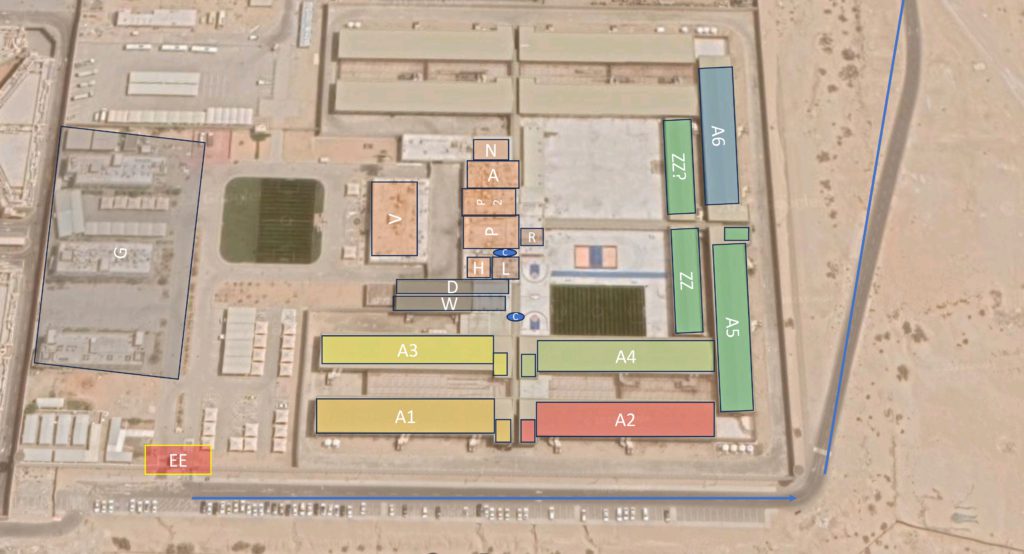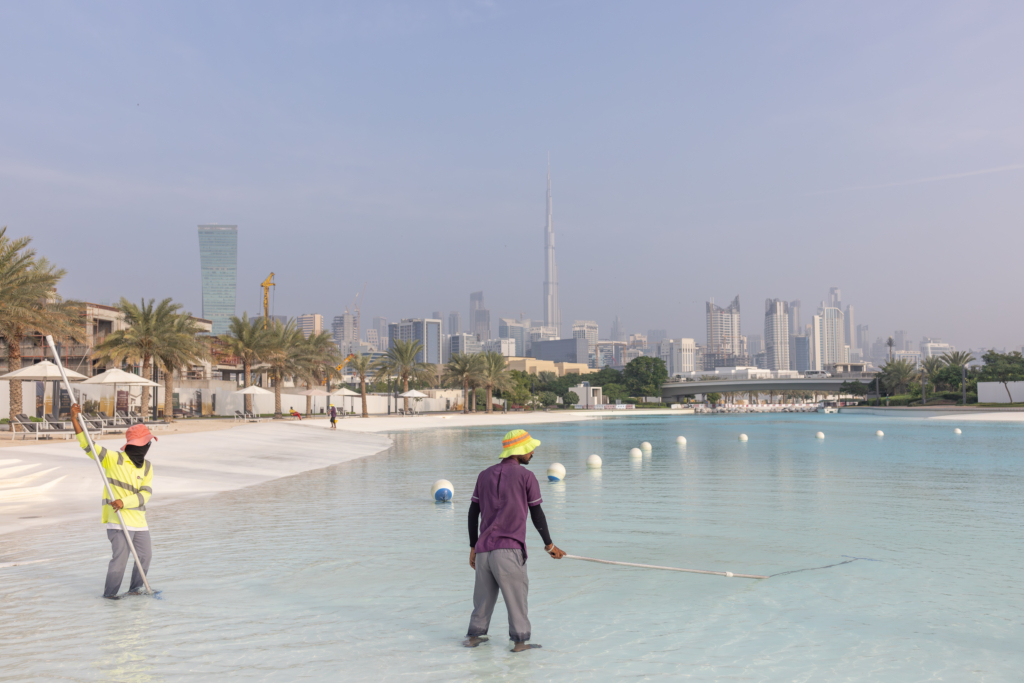The United Arab Emirates has ignored the chorus of calls from international civil society to demonstrate its respect for human rights. The hosts of this year’s global COP28 climate change conference have refused to release imprisoned dissidents, Amnesty International said.
The Emirati government’s legislation and practices impose severe restrictions on the rights to freedom of expression, association and peaceful assembly and violate a broad range of other rights including the right to privacy and migrant rights. In the past year, hundreds of international civil society groups, including Amnesty International, have appealed to the UAE to release imprisoned dissidents and allow civil society to function freely in the country, but the government has refused to even engage in a discussion about its domestic human rights record or undertake any reforms.
“It’s patently clear that no state can have any credibility in addressing the climate crisis while continuing to tighten its chokehold on civil society. That the UAE, with its abysmal human rights record, is spearheading discussions on one of the gravest existential human rights challenges facing humanity, at one of the most high-profile international forums, makes a mockery of COP28,” said Amnesty International’s Secretary General Agnès Callamard.
That the UAE, with its abysmal human rights record, is spearheading discussions on one of the gravest existential human rights challenges facing humanity, at one of the most high-profile international forums, makes a mockery of COP28.
Amnesty International’s Secretary General Agnès Callamard
“Releasing those unjustly imprisoned, many for simply demanding democracy in the UAE, would send a crucial message that the UAE is prepared to fulfil its human rights obligations. It would also provide hope that COP28 could proceed in an environment free from fear and intimidation.”
“If the UAE government is serious about its pledge to hold an ‘inclusive’ COP, then it must start by immediately releasing the dozens of Emiratis left languishing in prison simply for expressing their opinions. Authorities must also cease unlawful surveillance and repeal laws that infringe upon human rights to freedom of expression and peaceful assembly. Anything less exposes the UAE’s COP presidency as a PR tactic designed to distract from the grim reality of the authorities’ notorious human rights record.”
At least 64 Emirati citizens remain unlawfully imprisoned because of either actual or perceived political dissent. The majority of these prisoners date from the mass trial of 2012-2013, in which 94 Emiratis were tried for calling for reform and democratic change. The Supreme Court, in its unappealable verdict, ignored the fact that many of the defendants had been held incommunicado for months and some testified that they had been tortured into making “confessions”, which the court later used as evidence to convict them.
More than one third of the defendants in the mass trial had signed a petition to the state’s rulers in 2011 calling for an elected legislature. The UAE has continued to pursue defendants in the mass trial who fled to safety abroad. In May this year, authorities announced they had imprisoned Khalaf al-Rumaithi, one of the 94 defendants in this case, after Jordanian security forces deported him at the request of UAE authorities. In June, state security summoned Mansoor al-Ahmadi, a mass trial prisoner previously released after over eight years in prison and placed him in incommunicado detention.

The 2012-2013 mass trial included two prominent human rights lawyers, Mohamed al-Mansoori and Mohamed al-Roken. Both were past presidents of the Jurists Association, which was the national association of Emirati legal professionals until the government dissolved its leadership in 2012.
After 2013, Ahmed Mansoor, a member of Human Rights Watch’s Middle East Advisory Committee, became the last Emirati human rights defender speaking out and working in the country. In 2017, authorities imprisoned him for “promoting false and shaded information”.
Emirati law criminalizes criticism of the rulers and the state, demonstrations “infringing on public order”, publishing anything “harming the national currency” or causing “confusion” about the economy, “harming state interests” (which can be punished by death or life in prison), announcing “non-loyalty to [the state] leadership”, “incitement to sinfulness or indecency” and “infringing on public morals”.
None of these laws has been repealed since the UAE was named the host of COP28, and the text of the Host Country Agreement, which will determine whether and how these laws apply on the conference grounds, remains secret.
Emirati law provides no right to a decent livelihood and decent working conditions for migrant workers. Only 8 per cent of Emiratis work in the private sector, which meets most of its employment needs with migrant labour. Unlike the public sector which employs most Emiratis, the private sector has no minimum wage. “Service workers”, meaning those who work in their employer’s household, can be legally made to work for up to 72 hours per week.

In 2021, following racially motivated mass arrests, the UAE deported at least 376 African migrant workers without any due process, often after holding them incommunicado for months and subjecting them to cruel, inhuman or degrading treatment.
“With all eyes on COP28, the UAE must embrace the opportunity to take meaningful action on climate justice and human rights. The world will be waiting and watching to see how the UAE leads these crucial talks on the planet’s future. The same scrutiny will be applied to the UAE’s stained human rights record, which it can start to remedy by ensuring that everyone in the country can express themselves peacefully and freely,” said Agnès Callamard.
With all eyes on COP28, the UAE must embrace the opportunity to take meaningful action on climate justice and human rights. The world will be waiting and watching to see how the UAE leads these crucial talks on the planet’s future. The same scrutiny will be applied to the UAE’s stained human rights record.
Amnesty International’s Secretary General Agnès Callamard
Unlike most countries, the UAE is not a signatory to the International Covenant on Economic, Social and Cultural Rights and the International Covenant on Civil and Political Rights.
Among other appeals, 55 civil society organizations in May and over 200 in September published joint statements about the urgent need for reform of the UAE’s poor human rights record. For over five years, Amnesty International’s communications with the UAE government about pressing human rights issues have gone unanswered. The government has rejected any dialogue on its human rights record this year.
Tags: UAE, Human Rights, Civil Society.
Kyrgyzstan: Detention of Rita Karasartova is sign of deepening repression
Azerbaijan: Authorities must immediately release Tofig Yagublu
Honduras: The candidates have an opportunity to commit to human rights
El Salvador: Fidel Zavala, human rights defender, at risk of torture
Thailand: Must end malicious smear campaigns and cyberattacks on civil society
Contact Us
Regional - Américas
Calle Luz Saviñón 519, Colonia del Valle Benito Juárez, 03100. Ciudad de México, México
Global
1 Easton Street, London WC1X 0DW. Reino Unido.